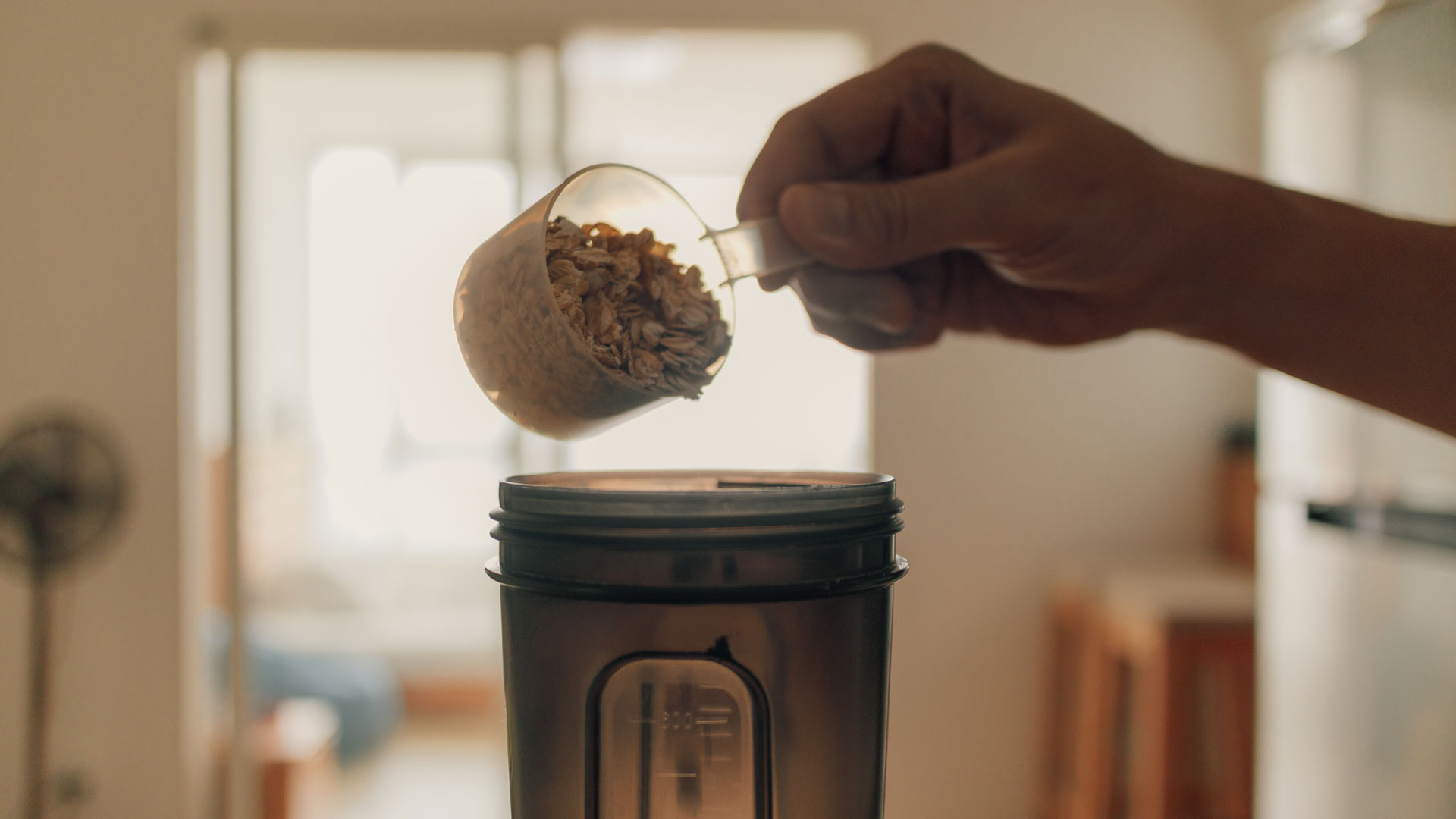Does protein powder expire?
Does protein powder expire? We examine the research to find out


You might be wondering does protein powder expire? If you stocked up on the best protein powders for weight loss and the best protein powder for women in the sales, you might want to know how long it will last. Luckily, if you have tubs of protein powder lying about and are worried they’ll go bad, the date stamped on the package is an indication of quality, not safety.
When thinking of ways to use protein powder before it expires, it doesn’t have to just go in shakes or smoothies. Instead, you can mix the powder into various recipes like oatmeal, pancakes, waffles, and breakfast bowls to bulk up their protein profile. So, sneaking a scoop of protein into your favorite foods is an easy way to use your protein powders up before they go bad.
We’ll be explaining whether protein powder expires, if it’s safe to consume beyond its expiration date, and the types of protein powders you can buy.
Does protein powder expire? What you need to know
According to the Food and Drug Administration (FDA), between the food industry and consumers, Americans are throwing out about a third of our food — worth about $161 billion each year. In addition, the FDA says uncertainty over the meaning of dates on food packaging labels is contributing to about 20% of food waste in the home.
There are no uniform descriptions used on food labels in the United States, leading to confusion.
Some commonly used phrases and what they mean include:
- ‘Best Before/Best if Used By’ date indicates when a product will be of the best flavor or quality. It does not mean you should throw the product away immediately after that date.
- ‘Sell-By’ date tells a store how long to display a product for sale for inventory management. This is commonly used for fresh produce.
- ‘Use-By’ date is the last date recommended for the use of the product while at peak quality.
Although different protein powder brands may use various date labels, you'll likely see a ‘best before’ date on their containers. Using a protein powder past this date isn't necessarily dangerous to consume but may be of poorer quality than when it was fresh.
Get the Fit&Well Newsletter
Start your week with achievable workout ideas, health tips and wellbeing advice in your inbox.
Studies have been carried out to gauge the shelf life of protein powders. For example, researchers in one study found that whey protein powder has a shelf life of more than 12 months under normal storage conditions, defined as 70°F (21°C) and 35% humidity. The researchers said no significant changes happened to the powder when stored for 19 months.
In another study, researchers determined that whey protein has a shelf life of nine months when stored at 95°F (35°C) but at least 18 months when stored at room temperature, 70°F (21°C) with 45–65% humidity.
Whey protein is the most popular type of protein powder, and most of the research has involved this type of powder. Whether the suggested shelf life applies to other protein powders remains unknown, but it’s likely similar if stored under the same conditions.

While we don’t recommend that you use a protein powder that has significantly passed its expiration date, it’s unlikely to spoil overnight if stored correctly.
Though expired protein is safe to consume, lysine, an essential amino acid in the protein, can break down over time, affecting the quality. When this happens, the protein may be less effective at aiding muscle building.
Sometimes protein powder goes bad or can take on a rancid taste before its expiration date, especially if not stored under the right conditions.
A study published in Dairy Science & Technology found that when whey protein was stored at 113°F (45°C) for 15 weeks, there was a significant increase in oxidation, which led to the production of compounds that caused an unpleasant taste.
According to research, signs that protein powder has gone bad include an unpleasant smell, bitter taste, change in color, or clumping. Just like eating spoiled foods, consuming protein powder with one or more of these signs could make you ill, regardless of the expiration date.
Nutritionist and Academy of Nutrition and Dietetics member Letitia Kinsale had some advice for keeping your protein powder fresh:
- Although the packaging protein powder comes in isn’t particularly attractive, don’t decant into another container. The opaque packaging is designed to protect the contents from light.
- Keep the protein powder in a cool, dry place. Avoid the top of the kitchen appliances as the heat and humidity there will shorten its shelf life.
- Make sure the spoon or scoop you use is always dry. Adding moisture to the tub makes it a breeding ground for mold and mildew.

Are all protein powders the same?
Most protein powders serve the same purpose – to supplement your protein intake, but there are several different types of protein powder depending on your nutritional needs. As long as they are stored in optimum conditions, they should have a long shelf life.
Common types of protein powder include:
- Whey: This water-soluble milk protein is popular among athletes and bodybuilders. It is a complete protein, containing all nine essential amino acids. Whey protein is absorbed quickly and easily by the body. Some people who are allergic to milk may be allergic to whey.
- Casein: Like whey, casein also comes from dairy, making it unsuitable for vegans and those with milk allergies. The body digests this protein more slowly than whey, and research suggests it may be best to consume it at night.
- Soy: Soy protein powder is a dairy-free protein powder that contains all the essential amino acids. Soy protein has a more robust nutty flavor, and some people find the texture a bit grainier than whey protein.
- Pea: Pea protein powder is naturally gluten-free and vegan and is suitable for anyone with an allergy to peanuts, eggs, fish, shellfish, cow’s milk, wheat, and soy. Pea protein is also a good source of iron.
- Hemp: Hemp seeds are complete proteins containing essential fatty acids. One study found that the amino acid profile of hemp protein is similar to egg whites and soy, which are both high-quality sources of protein.
Catherine is a freelance journalist writing across titles such as Verywell Health, Healthline, The Daily Telegraph, Refinery29, Elle, and Vogue. She specializes in content covering health, fitness, wellness, and culture. A once reluctant runner, Catherine has competed in 30 running events in the past five years and looks forward to one day running the London Marathon.
-
 A Pilates instructor says this is the beginner-friendly core exercise everyone should try
A Pilates instructor says this is the beginner-friendly core exercise everyone should tryForget crunches, this is the perfect foundation move
By Alice Porter Published
-
 Prevent poor posture and release tension from sitting down with these four simple stretches from a yoga instructor
Prevent poor posture and release tension from sitting down with these four simple stretches from a yoga instructorThe daily poses he swears by, no matter what
By Alice Porter Published